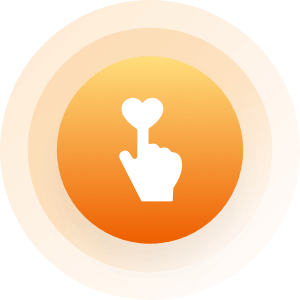| Topic: Paradox anyone? | |
|---|---|
|
Edited by
joad
on
Tue 01/06/09 06:06 AM
|
|
|
Some call me the thread ender. some call me the space cowboy |
|
|
|
|
|
some call me the gangsta of love
|
|
|
|
|
|
some call me the gangsta of love SOme people call me maurice |
|
|
|
|
|
'cause I speak of the pompitous of love
I intend to reply to your post. Just have other stuff to do occasionally. |
|
|
|
|
|
paradox is not the same as contradiction. A commonly sighted paradox, you go back in time and kill your father before you were born. Paradox. the blue ball is red- contradiction. See the differance. Yes, I see the difference.I don't believe your example is an appropriate corollary to the true/false example though. And while I also agree that contradiction isn't paradox, contradiction is a necessary component of paradox. Two contradictory things that each appear to be true is pretty much the definition of a paradox. I believe the reason the example "The following statement is true: everything I say (write) is false" is paradoxical is rooted in our necessity, as humans, to accept each others statements as true, unless we have reason for suspicion (dealing with a used car salesman), or the statement contradicts what we already know to be either true or false: A blue ball is blue = true. A blue ball is red = false. Imagine what life would be like if our initial assumption when someone states something is that it is false until proven true. So: What I am about to say is true. Response- OK Everything I say is false. Response- OK... Hey, wait a minute! That means what you said before is false, which means that what you're saying now is true, and so on. Where, to paraphrase, if you don't mind: All blue balls(!) are blue. Response- OK This blue ball is red. Response- "...Whoa... no sorry try harder" - as you say. The statement "everything i say is false" is the same as the blue ball is red, meaning its observer dependant which is the explanation for godels therom. You con not dertmine the validity of a staement/equation without being outside that system or rules you used to come to that conclusion. See now? "Every thing I say is false" is self-contradictory only when one assumes the speaker's statements are true. You stated it more accurately earlier when you reduced both sides to "This true statement is false." It's no different than your earlier analogy assuming the existence of a time machine: "I can't kill my father because I can kill my father." A contradictory self-referential statement differs in my mind from a simple contradiction in that it appears to be simultaneously true and false, when, as you stated, considered within the system of rules used to consider it And, if I understand Godel's theorem correctly, once one steps outside that system of rules in order to consider the statement, the same problem arises because the original system of rules is contained within the new system of rules. That's so mind-numbingly paradoxical that I begin having serious difficulty thinking about it. Paradox? Contradiction? Who cares what we call it? Let's call it the "Pompitous Effect" and be done with it. |
|
|
|
|
|
paradox is not the same as contradiction. A commonly sighted paradox, you go back in time and kill your father before you were born. Paradox. the blue ball is red- contradiction. See the differance. Yes, I see the difference.I don't believe your example is an appropriate corollary to the true/false example though. And while I also agree that contradiction isn't paradox, contradiction is a necessary component of paradox. Two contradictory things that each appear to be true is pretty much the definition of a paradox. I believe the reason the example "The following statement is true: everything I say (write) is false" is paradoxical is rooted in our necessity, as humans, to accept each others statements as true, unless we have reason for suspicion (dealing with a used car salesman), or the statement contradicts what we already know to be either true or false: A blue ball is blue = true. A blue ball is red = false. Imagine what life would be like if our initial assumption when someone states something is that it is false until proven true. So: What I am about to say is true. Response- OK Everything I say is false. Response- OK... Hey, wait a minute! That means what you said before is false, which means that what you're saying now is true, and so on. Where, to paraphrase, if you don't mind: All blue balls(!) are blue. Response- OK This blue ball is red. Response- "...Whoa... no sorry try harder" - as you say. The statement "everything i say is false" is the same as the blue ball is red, meaning its observer dependant which is the explanation for godels therom. You con not dertmine the validity of a staement/equation without being outside that system or rules you used to come to that conclusion. See now? "Every thing I say is false" is self-contradictory only when one assumes the speaker's statements are true. You stated it more accurately earlier when you reduced both sides to "This true statement is false." It's no different than your earlier analogy assuming the existence of a time machine: "I can't kill my father because I can kill my father." A contradictory self-referential statement differs in my mind from a simple contradiction in that it appears to be simultaneously true and false, when, as you stated, considered within the system of rules used to consider it And, if I understand Godel's theorem correctly, once one steps outside that system of rules in order to consider the statement, the same problem arises because the original system of rules is contained within the new system of rules. That's so mind-numbingly paradoxical that I begin having serious difficulty thinking about it. Paradox? Contradiction? Who cares what we call it? Let's call it the "Pompitous Effect" and be done with it. Nicely stated. |
|
|
|
|








